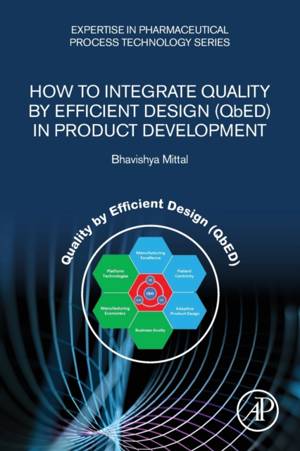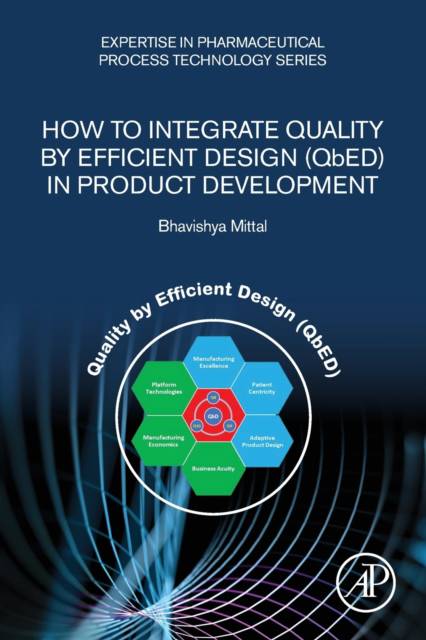
- Retrait gratuit dans votre magasin Club
- 7.000.000 titres dans notre catalogue
- Payer en toute sécurité
- Toujours un magasin près de chez vous
- Retrait gratuit dans votre magasin Club
- 7.000.0000 titres dans notre catalogue
- Payer en toute sécurité
- Toujours un magasin près de chez vous
How to Integrate Quality by Efficient Design (Qbed) in Product Development
Bhavishya MittalDescription
The development of a robust drug product requires juggling many competing priorities such as overcoming scientific challenges, following regulatory requirements, and managing business-related concerns. Unfortunately, despite large resources spent on R&D, multifactor productivity of pharmaceuticals is on the decline for several years now. Because of this business reality, pharmaceutical companies have seen a notable change in the traditional operating model and footprint over the past couple of decades. Outsourcing, in particular, has emerged as a successful business model for many pharmaceutical companies looking for ways to strategically increase their R&D capabilities and to augment their in-house resources. How to Integrate Quality by Efficient Design (QbED) in Product Development bridges the gap between theory and practice when it comes to strategic decision-making in a pharmaceutical research scenario. This book will introduce the concept of QbED and focus on various aspects such as patient-centric product designs, platform-based manufacturing technologies, business acuity, and regulatory strategies to balance the challenges in outsourcing with the need for strategic and statistically sound experiments rooted in good science. Detailed discussions will cover pharmaceutical business models, regulatory approval process, quality by design (QbD), business analytics, and manufacturing excellence specifically for small molecules and solid oral dosage forms. With the addition of case studies, flowcharts, diagrams, and data visualizations, How to Integrate Quality by Efficient Design (QbED) in Product Development will be a practical reference to help professionals working in the area of pharmaceutical drug development, strategy, and outsourcing management.
Spécifications
Parties prenantes
- Auteur(s) :
- Editeur:
Contenu
- Nombre de pages :
- 274
- Langue:
- Anglais
- Collection :
Caractéristiques
- EAN:
- 9780128168134
- Date de parution :
- 27-08-19
- Format:
- Livre broché
- Format numérique:
- Trade paperback (VS)
- Dimensions :
- 152 mm x 229 mm
- Poids :
- 371 g

Les avis
Nous publions uniquement les avis qui respectent les conditions requises. Consultez nos conditions pour les avis.






